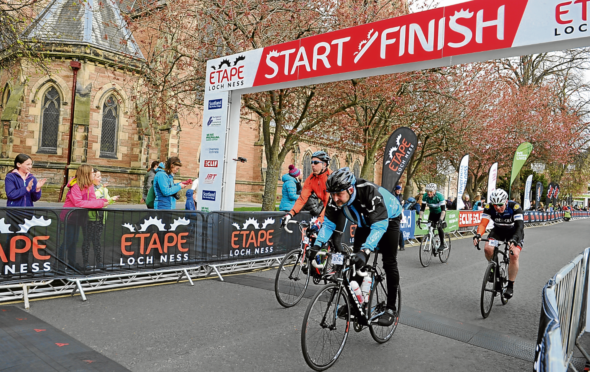A major cycle event in the Highlands generated over £1million for the Highland economy, it has emerged.
Figures from an independent study show that thousands of visitors flocked north or the Etape Loch Ness – and with the majority of competitors from outwith the area, it gives a massive boost.
More than three quarters of the 5,200 riders who took part last year did not live in the Highlands; with 17% of those living outside of Scotland.
Etape Loch Ness event director Malcolm Sutherland said the aim of the event was always to return the benefits the event brings. He said: “When we set up this event, we knew that it had the potential to be more than just a cycling event and over many years of hard work, we are delighted to see the benefits it is bringing.
“We simply couldn’t do this event without the help of the local community, so it is very gratifying to see the return benefit, whether that is through the additional spending which would otherwise not happen, or through the fund-raising that is carried out for charities here in the Highlands and beyond.”
The 66-mile route traditionally begins in Inverness, following the A82 along Loch Ness, before doubling back through Fort Augustus.
The event is scheduled to return for its fifth year next month.
Graeme Ambrose, chief executive officer of tourism body VisitInvernessLochNess added: “I think there is a growing appreciation within the community of this event, which is now firmly embedded in the local calendar.
“It was set up not only as a way of promoting cycling and raising the profile of the Highlands as a cycling destination, but to bring benefit to the local community – and on that it is certainly delivering.
Councillor Margaret Davidson for Aird and Loch Ness said: “The Etape has grown in reputation and now attracts riders from across the UK and Europe.
“The Etape staff are extremely good at working with local communities. They keep us informed and are a responsive to individual needs e.g care workers ; people needing to go to work etc as they can be. In addition they employ local people at water stops and they make good money for local causes.”
